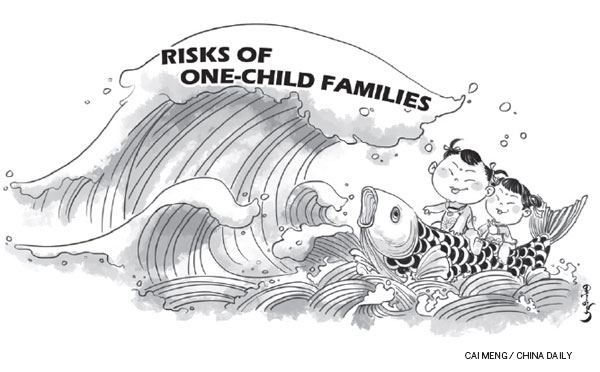Two-child policy fundamental to population security
By Mu Guangzong (China Daily) Updated: 2015-03-05 07:39

And, of course, it is fundamentally unfair to allow some families to have a second child while not permitting others.
Moreover, the long-term low fertility rate has led to an unsustainable population structure. Since 2012, the working age population has begun to decline. The loss of the working age population is about 2 to 3 million every year, which imposes rigid restrictions on sustainable economic growth. Also, there is a gender imbalance in favor of males, which may threaten social stability.
More seriously, China has already formed low fertility culture, and many young couples allowed a second child under the recent reform granting the right to couples where one of them is a single child have chosen not to have one because of the costs involved. Since 2000, China has fallen into the trap of "ultra low fertility" because of both its family planning policy and low fertility culture. In fact, the overall fertility rate is lower than 1.3, and China will face a labor shortage if this rate can't be increased.
China needs to worry about its low fertility rate rather than a population explosion, because a country's population is a key part of its national strength. Population security should be the starting point for China's population policy. The authorities should guarantee a strategic reserve of young people, labor and talents.
To reduce the cost of raising a child, which would encourage more couples to have a second child, the government should provide policy support such as paid maternity leave and low-cost medical treatment. Public facilities and services should also be improved in order to create an attractive social environment for a two-child policy.
The author is a professor at the Population Research Institute of Peking University.

I’ve lived in China for quite a considerable time including my graduate school years, travelled and worked in a few cities and still choose my destination taking into consideration the density of smog or PM2.5 particulate matter in the region.











